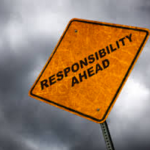If you have replaced your roof within the last 5 years please send PAID receipt for installation or a statement from a licensed roofer showing installation date/estimated age of roof to documents@gisnola.com
New Kenner Location: 2400 Veterans Ste 115
-
Address: 3815 MacArthur Blvd New Orleans, LA 70114
-
Phone: (504) 875-4077
-
Email: info@gisnola.com
A lot of advice and insight we give our clients and prospective clients regarding insurance rates typically includes information surrounding “credit score”. Having a high credit score typically correlates with being responsible with your money, which is why a good credit score can help lower your insurance rate.
What if your credit score isn’t as great as you want it to be? What if you made some bad financial decisions or simply forgot to pay some bills? Do you have to suffer those consequences forever? The good news is the answer is “no.” There are a lot of ways you can improve your credit score. But like many things, improving your credit score takes some time.
Here are 5 ways to improve your credit score over time:
1. Check your credit report
 In order to understand how to fix your credit score, begin with reading your credit report. Another reason to check your credit report is that sometimes it contains errors. Check for any late payments listed that are incorrect and check that the amount you owe for all of your accounts is correct. If you do find errors, write a letter to the creditor asking them to remove the inaccurate information.
In order to understand how to fix your credit score, begin with reading your credit report. Another reason to check your credit report is that sometimes it contains errors. Check for any late payments listed that are incorrect and check that the amount you owe for all of your accounts is correct. If you do find errors, write a letter to the creditor asking them to remove the inaccurate information.
2. Reduce your debt
Another huge factor in credit scoring is utilization of credit. First things first, stop using your credit card. Create a payment plan that utilizes some of your available cash to pay down your credit card debt. It is optimal to keep your credit card balance less than 30% of your limit, says Kim Gemperli with NOLA Lending.Kim also reminds us that
“Many customers have great payment history on all of their accounts and expect to have a great credit score. It is always a surprise to them when their score is less than desirable. So often their score is low simply because their credit is maxed out. Paying down their balances ALWAYS boosts the score tremendously!”
3. Pay Bills on Time
Late payments, even if only by a day or two, can have a major impact on your credit score. Missed payments have a negative impact on your credit score as well. If you do have missed payments, pay them and get up to date on what you owe. The longer you pay your bills on time, the more your credit score will increase.
4. Create reminders for payments
We are all human and make mistakes, including forgetting to pay a bill or two. Paying your bills on time is one of the biggest factors contributing to your credit score. Set up reminders in a place where you will not be able to ignore them, for example in your phone calendar, on your work calendar or through your bank. You may also consider creating auto payments for your bills through your credit card or loan providers.
5. Don’t Close Unused Credit Cards
Do not close unused credit cards that you have had for some time. Your score also depends on the length of your credit so you want to keep accounts that you have a good standing, long history with. The best plan here is on a case-by-case basis. If your credit score is low because you don’t currently have credit, you may need to open a new credit card to show yourself responsible.
Fix your credit score, become financially responsible
 Improving your credit score is more than just improving your number. It’s also about becoming responsible with your money and a better steward of what you have. By learning how to manage your money correctly, you are setting yourself up for a better financial future. Plus, working to manage your money correctly does, indeed, raise your credit score, which can help save you money in many situations down the road.
Improving your credit score is more than just improving your number. It’s also about becoming responsible with your money and a better steward of what you have. By learning how to manage your money correctly, you are setting yourself up for a better financial future. Plus, working to manage your money correctly does, indeed, raise your credit score, which can help save you money in many situations down the road.
Have you checked your credit score lately?
-Special thanks to Kim Gemperli of Eustis Mortgage for her assistance.-
